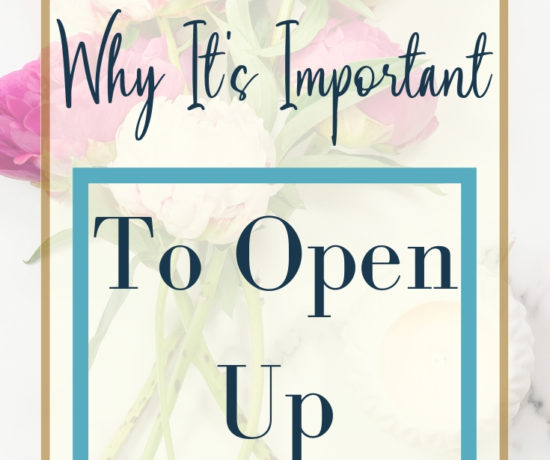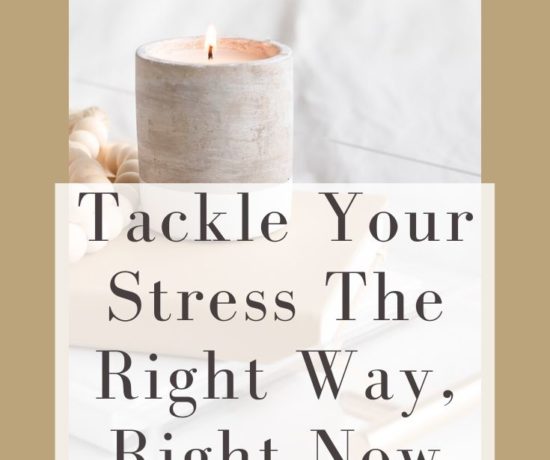Living a stress-free life seems almost like an unrealistic fantasy but I assure you, there are many ways to combat daily and life-long stressors. Before we can be stress-free we must learn, what exactly is stress? Stress is an emotional response to something usually external (but also, internal/mental) that makes you feel emotions such as frustrated, angry, anxious or depressed, to an uncomfortable extreme.
When stress occurs, your body’s reaction is to go into “fight or flight” mode and a hormone called Cortisol rushes into your bloodstream to help you, should you choose to fight or fly away (quickly!). In very short periods of time, such as being ‘SURPRISED!!’ as your birthday or being chased through a parking lot by a tiger, stress is your BFF. But only then and only for the few minutes that you’re freaking out in response to a challenge (followed by 10-15 minutes of cool down), is stress your BFF.
When you’re stressed out for longer periods of time, like throughout your workday at a job that you hate or throughout the weekend when you’re home with all day with a spouse who is violent and has a temper… This is called ‘continuous stress’. Imagine being ‘surprised!’ or chased by the tiger all day/night?! That sounds like a heart attack waiting to happen, right? Well, guess what, IT IS!!
Maintenance For a Stress-Free Life
 Most of us know that in order to live a long, healthy, stress-free life, we must adhere to the following basic tips; eat a big breakfast, sensible lunch & small dinner. No food or technology of any kind, two hours before lights out.
Most of us know that in order to live a long, healthy, stress-free life, we must adhere to the following basic tips; eat a big breakfast, sensible lunch & small dinner. No food or technology of any kind, two hours before lights out.
We must exercise regularly and every adult must get approximately 7-8 hours of sleep every night. It’s when we’re sleeping that our bodies ‘recover’ from whatever stress was brought on that day.
But when you find that work can lead to feeling unwell, weak, stressed, and unable to sleep well, it can be time to rethink a little about what you are currently doing.
No matter how much love you have for your job, things like that will mean that you will need to make your health a top priority. There are tons of different ways that you can reduce stress and stay healthy. Because when it’s your life that’s at stake, you have no choice but to give it everything you’ve got!
How to Be Stress-Free
In Your Daily Life

Eat Nourishing Foods For a Hearty Breakfast
 You don’t want to just survive each day, you really want to thrive! In order to truly thrive with enough energy and balanced blood sugar in your system, you need to start each day with a hearty breakfast of clean, whole, and nourishing foods. Eating a breakfast of this caliber will supply you with all the essential nutrients your body needs to cope with stress and can actually keep you satiated.
You don’t want to just survive each day, you really want to thrive! In order to truly thrive with enough energy and balanced blood sugar in your system, you need to start each day with a hearty breakfast of clean, whole, and nourishing foods. Eating a breakfast of this caliber will supply you with all the essential nutrients your body needs to cope with stress and can actually keep you satiated.
“The general goal of a morning nutrition plan is one that both keeps us energized in addition to ensuring our stress levels remain as low as possible,” says Nutritionist CW Headley.
Being mindful to get plenty of vitamin C, antioxidants, minerals, and carbohydrates will keep you stress-free throughout the day. It will also help maintain a steady level of antioxidants in the body which play a major role in being able to avoid the many side effects of stress, mood swings in particular.
HEALTH TIP: Saturated fat is actually the BEST fat for you! Boom, that just happened (look it up!).
Try Taking Adaptogenic Herbs
You’ve heard this word buzzing around the wellness community longer than you’ve heard about farming your own bees (get it, buzzing)! Adaptogens are “transformer” herbs (as I call them!) that can literally adapt to whatever your body is going through at the time.
 Adaptogens can resist any kind of stress, physical, chemical or biological. They have roots in both Chinese and Ayurvedic (which I study) healing traditions and have reached a massive resurgence in popularity over the past few years. Some can be eaten whole as a plant-like herb, some are taken as a supplement or brewed into teas. Find out what works for you… I take some in supplemental form and others in teas.
Adaptogens can resist any kind of stress, physical, chemical or biological. They have roots in both Chinese and Ayurvedic (which I study) healing traditions and have reached a massive resurgence in popularity over the past few years. Some can be eaten whole as a plant-like herb, some are taken as a supplement or brewed into teas. Find out what works for you… I take some in supplemental form and others in teas.
Each one claims to do something a little different, but on the whole, “adaptogens help your body handle stress,” says Dr. Brenda Powell, co-medical director of the Center for Integrative and Lifestyle Medicine at the Cleveland Clinic’s Wellness Institute. “They’re meant to bring us back to the middle.”
PERSONAL NOTE: I actually take two Adaptogens, Ashwagandha & Holy Basil, for my generalized anxiety and to promote a healthy stress response.
Visit Your Healthcare Provider or Healer
Having regular appointments with your healthcare provider to stay on top of your stress-reduction efforts, is incredibly important. And you want to closely monitor any side effects such as high blood pressure, that you may have as a result of your once-stressful life (hopefully past-tense if you try everything above!).
 Whether you see a western medicine doctor, Chinese herbalist or an Ayurveda specialist, it’s important to find someone you trust. This way you’re more likely to maintain consistency in seeing them as you get older and whenever you or your body is going through anything major in life!
Whether you see a western medicine doctor, Chinese herbalist or an Ayurveda specialist, it’s important to find someone you trust. This way you’re more likely to maintain consistency in seeing them as you get older and whenever you or your body is going through anything major in life!
Although I’ve mostly been talking about Holistic or ‘natural’ remedies for stress relief, I’m the first person to admit that when you are suffering any unpleasant side effects of your stress like heartburn (that’s my #1 culprit!), I totally reach for anything I can find over the counter!
Of course, it’s always an inconvenience to have to run out and drive somewhere, just to get something to help your discomfort huh? This is where I suggest that you consider checking out a website like OTC Medicine to get any over-the-counter medicines, even repeat prescriptions, all at great discount prices too!
Relaxation Tips to Reduce Stress Symptoms
The time will eventually come when you’re just not feeling stress-free. Okay, let’s be honest… that’s the reality of most days, am I right? Try any/all of these relaxation tips to help reduce your symptoms of stress.
 Accept that there are people, things, and events that you cannot control.
Accept that there are people, things, and events that you cannot control.- Be Present and slow down. Take five minutes out of your day to focus on just one behavior with total awareness. Notice how the air feels on your face as you walk down the street. Enjoy the texture and taste of each bite of your food.
- Try to keep a positive attitude; rather than defaulting to negativity. Instead of saying “nothing ever works out for me”, tell yourself a positive message like, “I’m doing my absolute best today”.
- Manage your time efficiently. Give yourself time to get things done; try setting your alarm for five minutes before you finish something. This way you’ll have time to prepare for its ending.
- Exercise regularly by walking, hiking, swimming or working out at the gym. Your body can fight stress better when it’s in top shape.
- Eat clean, whole, nutritious, and well-balanced meals. Try adding more alkaline and fermented foods to your diet.
- Take daily supplements (the following list is what I personally take) for your health, well-being, and a stress-free life; a probiotic with at least 40 billion CFUs & over 10 unique strains, a multi-vitamin/mineral, specialized vitamins like D3 & K2, Methylated B-Complex, magnesium (glycinate, easiest to absorb), Omega-3, any/all Adaptogens that fit with your body’s needs (again, I take Ashwagandha & Holy Basil for stress and anxiety), and amino acids GABA and Dopamine (for those of us who may have dabbled in recreational drugs, once upon a time).
- Get enough rest and sleep. Your body needs time to recover from stressful events.
- Talk to a therapist if things get too overwhelming. There’s a chance that you could have a co-occurring condition such as depression or anxiety, either as a result or side effect of your stress.
Begin a Meditation or Chanting Practice
 Meditating for a few minutes a day can help ease anxiety brought on by stress (both external and oxidative). “Research suggests that daily meditation may alter the brain’s neural pathways, making you more resilient to stress,” says wellness coach Robbie Hartman. It’s also really easy to do!
Meditating for a few minutes a day can help ease anxiety brought on by stress (both external and oxidative). “Research suggests that daily meditation may alter the brain’s neural pathways, making you more resilient to stress,” says wellness coach Robbie Hartman. It’s also really easy to do!
Focus your attention on reciting a positive mantra such as “I feel at peace” or “I love myself”. Sit up straight with both feet on the floor. Close your eyes. Perhaps you have a daily spiritual practice as in Buddhism, which includes the chanting of a mantra?
Personally, I’m a Buddhist who chants and/or meditates every day, as part of both my morning and evening rituals – or whenever I need to! I gain immediate relief from chanting during a stressful or anxious moment. I was born/raised into my Buddhist practice and while the chanting is not solely for quelling anxiety, it has always helped to calm my nerves when necessary.
Learn Deep Breathing To Be Stress-Free
 Either sit in the Lotus position or sit in a comfortable chair that lets you keep your back straight and your feet flat on the floor.
Either sit in the Lotus position or sit in a comfortable chair that lets you keep your back straight and your feet flat on the floor.- Put your hands gently on your belly, right below your ribcage.
- Ready to take a breath? Expand your belly, drawing breath in through your nose. When you do this right, you’ll feel your hands move slightly.
- Don’t hold your breath. Open your mouth a little. Slowly let your belly contract, gently pushing your breath out your mouth.
- Repeat this for a few minutes. Try not to think of anything in particular. If thoughts wander into your mind, let them wander back out. Don’t try to push the stress out of your body – just let it go.
- Practice this for several minutes each day. Work up to about five or ten minutes at a sitting.
- Do this once a day or as needed. When something is stressing you out, stop and do a few minutes of this deep breathing until you feel calm.
Jessica Rose Adams



 Either sit in the Lotus position or sit in a comfortable chair that lets you keep your back straight and your feet flat on the floor.
Either sit in the Lotus position or sit in a comfortable chair that lets you keep your back straight and your feet flat on the floor.


No Comments